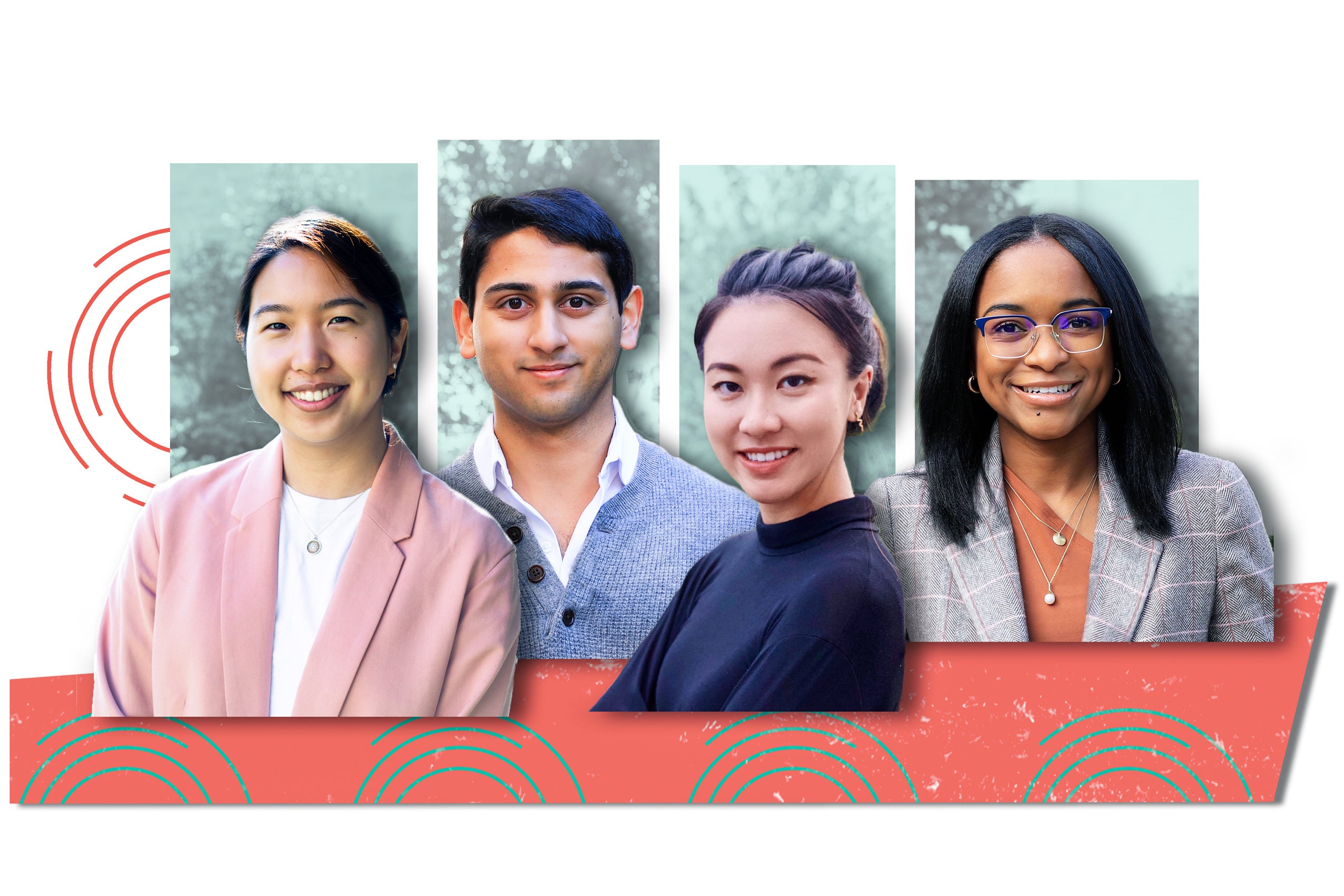Sidarth Singh ’22 says the Student Well-Being Working Group’s mission is straightforward.
“What we are looking to do is let students know that these resources are available, how they can access them, and then, if they’re having a hard time, who they can contact,” says Singh.
Last semester, the working group launched The Well, an initiative focused on fostering positive mental health and well-being at Harvard Law School and across the legal profession. The working group, whose student members include Singh, Samantha Camy ’23, Alice Hu ’24, and Irene Kwon ’23, is a community effort informed by students, staff, and faculty that prioritizes the needs of students by communicating about mental health and promoting campus resources.
In addition to its student members, the working group also includes Glenn Cohen ’03, James A. Attwood and Leslie Williams Professor of Law; Michael Gregory ’04, clinical professor of law; Jessica Soban ’07, dean for student services; Stephen Ball ’10, dean of students; Monica Monroe, assistant dean for community engagement, equity, and belonging; and Lakshmi Clark-McClendon, senior director of student affairs.
The students say they’ve noticed that not all their peers know about existing on-campus resources, which include one-on-one and group counseling sessions, wellness events, academic and personal support, financial wellness information, and more.
Besides promoting current mental health services, the working group held two focus groups this winter to better understand what additional resources could make a difference for students. They also planned a series of events for the spring, including Zumba and yoga classes, a cooking class, a session on healthy sleep habits, and reading week events. The working group will also reach out to student affinity groups over the summer to obtain input and assistance in planning for the upcoming academic year.
“The school wants to hear what students want. I think that there is an openness to hearing how students are feeling,” Camy says, adding that she hopes to learn if access to things like meditation apps, for example, would be helpful.
“The idea behind holding focus groups is to get a read on the landscape and where students are this year,” says Kwon. “Mental health experiences are very much informed by the communities you’re a part of on campus, and your identities, so we want to get that important feedback.”
Hu agrees. “We come from such diverse backgrounds and experiences with mental health before coming to Harvard Law School,” she says. “Our needs are diverse, so being a conduit for all the stories and experiences that we’re hearing on a daily basis from our peers, and being able to share with the administration what’s on students’ minds, is really important.”
The Student Well-Being Working Group’s primary goal is to have a positive impact on the mental health of students at Harvard Law School. But its members say they hope it will also have a ripple effect elsewhere.
“I think what we do here matters not only for HLS, and Harvard students, but also for students outside of these walls, because universities are looking at each other to see what their peer institutions are doing,” says Hu.
